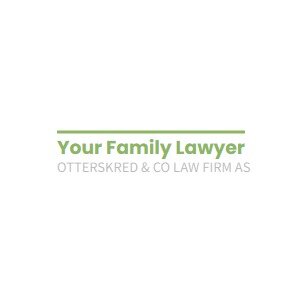Best Trusts Lawyers in Bergen
Share your needs with us, get contacted by law firms.
Free. Takes 2 min.
List of the best lawyers in Bergen, Norway
About Trusts Law in Bergen, Norway
Trusts in Bergen, Norway, are guided by a legal framework that differs from the traditional English trust system. Unlike common law countries, Norway follows a civil law system where trust concepts aren't inherently recognized. However, related structures exist, such as "stiftelser" (foundations) and "bo" (estates), which operate similarly to trusts by managing assets on behalf of beneficiaries. It's crucial to understand how these structures function within the Norwegian legal context when considering estate planning or asset management in Bergen.
Why You May Need a Lawyer
Legal assistance may be necessary for several reasons when dealing with trusts or related asset management structures in Bergen. Common situations include:
- Establishing a foundation to manage family wealth or support charitable causes.
- Navigating the complex legal requirements of succession and estate planning.
- Addressing disputes among beneficiaries or between beneficiaries and trustees or administrators.
- Ensuring compliance with tax obligations or understanding tax implications related to these structures.
- Transferring assets within family structures, particularly when cross-border issues arise.
Local Laws Overview
Norwegian law does not have a direct equivalent to the Anglo-American trust but offers alternative structures that serve similar purposes. Key legal aspects relevant to these structures in Bergen include:
- Stiftelser (Foundations): Non-profit entities that can hold property for specific purposes, governed by the Foundation Act.
- Bo (Estates): Managed for the benefit of heirs or creditors, particularly after a person’s death, governed by the Inheritance Act and the Bankruptcy Act.
- Deed of division: Legal document detailing how assets are divided among beneficiaries, crucial in the estate administration process.
- Tax Laws: Norwegian tax rules on inheritance, gifts, and income derived from managed assets can impact the creation and maintenance of asset-holding structures.
Frequently Asked Questions
What is the closest equivalent to a trust in Norway?
The closest equivalent to a trust in Norway is a "stiftelse" (foundation), which can hold and manage assets for specific purposes.
Can foreigners set up a foundation in Bergen?
Yes, foreigners can establish foundations in Bergen, but it's advisable to consult with a local attorney to navigate the legal requirements effectively.
Are trusts recognized for tax purposes in Norway?
Norwegian tax authorities do not recognize trusts as taxable entities. However, the economic activities carried out through similar structures like foundations may have tax implications.
How can disputes over asset management be resolved?
Disputes can be resolved through negotiation, mediation, or taking the matter to court. Legal advice is recommended to choose the most suitable approach.
What are the benefits of establishing a foundation in Bergen?
Foundations offer asset protection, enable management of wealth for long-term goals, and can support philanthropic objectives under clearly defined rules.
How is a foundation regulated in Norway?
Foundations in Norway are regulated under the Foundation Act, which outlines the formation, operation, and dissolution of these entities.
Can a foundation own real estate?
Yes, foundations in Norway can own real estate as part of their asset portfolio, subject to fulfilling the foundation's purpose.
Is it easy to change the purpose of a foundation?
Changing a foundation's purpose involves a formal amendment process requiring adherence to legal procedures and potential approval by regulatory authorities.
What is required to create a foundation?
To create a foundation, one must draft a charter, appoint a board, and establish goals and governance structures in compliance with the Foundation Act.
Do foundations pay taxes in Norway?
Foundations may be subject to taxes depending on their activities. It's critical to review tax obligations with a professional to ensure compliance.
Additional Resources
For further assistance, consider consulting the following resources:
- The Norwegian Tax Administration: Offers guidance on tax-related inquiries.
- The Brønnøysund Register Centre: Maintains records of Norwegian entities, including foundations.
- Local law firms: Experienced in providing specific legal advice tailored to asset management and trust-like structures.
Next Steps
If you need legal assistance regarding trusts or related structures in Bergen, consider taking these steps:
- Identify your goals and the specific assistance you require.
- Contact a lawyer specializing in estates, tax law, or foundations to provide personalized guidance.
- Prepare all necessary documentation related to your assets and intended structures for an efficient consultation.
- Consider joining seminars or information sessions offered by local legal bodies to gain deeper insights into current practices and legal requirements.
Lawzana helps you find the best lawyers and law firms in Bergen through a curated and pre-screened list of qualified legal professionals. Our platform offers rankings and detailed profiles of attorneys and law firms, allowing you to compare based on practice areas, including Trusts, experience, and client feedback.
Each profile includes a description of the firm's areas of practice, client reviews, team members and partners, year of establishment, spoken languages, office locations, contact information, social media presence, and any published articles or resources. Most firms on our platform speak English and are experienced in both local and international legal matters.
Get a quote from top-rated law firms in Bergen, Norway — quickly, securely, and without unnecessary hassle.
Disclaimer:
The information provided on this page is for general informational purposes only and does not constitute legal advice. While we strive to ensure the accuracy and relevance of the content, legal information may change over time, and interpretations of the law can vary. You should always consult with a qualified legal professional for advice specific to your situation.
We disclaim all liability for actions taken or not taken based on the content of this page. If you believe any information is incorrect or outdated, please contact us, and we will review and update it where appropriate.









